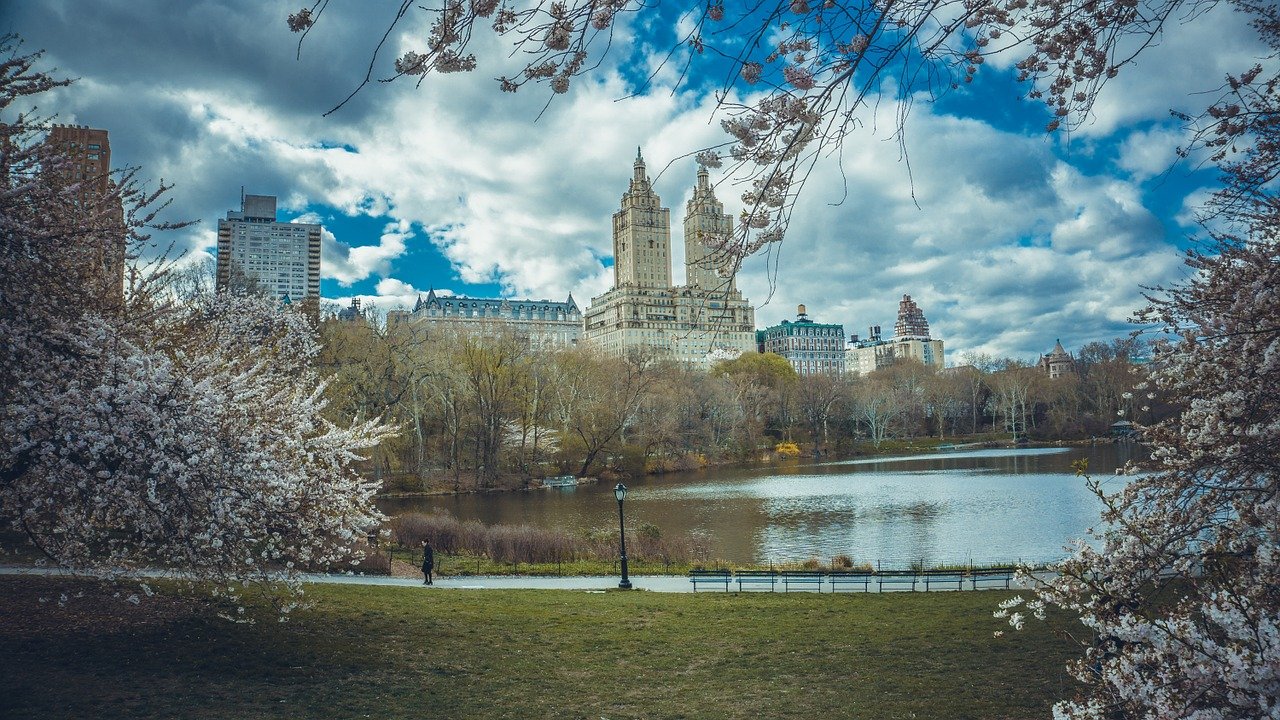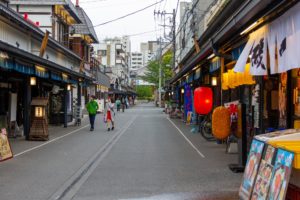(Image by Olya Adamovich from Pixabay)
Spring has sprung!
Spring (the noun, meaning the season) has sprung (the verb, meaning jumped up or appeared), which is a cute way of saying that spring has, at long last, arrived. The cold weather and short days of winter are over, and spring is in the air.
Warm Days, Cool Nights
The best thing about spring is probably the nice weather and the sunshine. Let’s look at some English expressions for talking about the beautiful spring weather.
- The weather is nice/mild.
If the weather is mild, it’s neither hot nor cold, it’s warm and pleasant. - It’s warm today. The weather is warm. It’s a warm day.
These are all ways that you can describe the weather on a certain day. - The sun is shining. It’s sunny. There’s a lot of sunshine.
When you’re talking about the sun, you can use the verb to shine, the adjective sunny, or the noun sunshine. - It warms up during the day, but cools down at night.
To warm up and cool down are phrasal verbs. Up means increasing, so warm up means that the temperature increases, while down means decreasing, so cool down means that the temperature decreases. - It’s cool tonight. The weather is cool. It’s a cool night.
Cool is just a little bit cold. The winter is probably cold, but the spring is cool.
Longer Days
Every year we turn the clocks ahead and we immediately have one more hour of sunlight. Which of course means:
- We have more daylight.
I missed the sunlight!
Daylight means the amount of sunlight we have during a day. We have more daylight in spring and summer than in fall and winter. Sunlight and daylight are basically the same thing, but daylight is usually used when we’re talking about the amount of time we have in a day, while sunlight is more general. - We have to turn the clocks ahead for daylight’s saving time.
In the spring, you turn the clocks ahead, and in the fall, you turn them back. - It gets dark later in the evening.
To get dark (or light) means to become dark or light. - The days are getting longer and longer.
The nights are getting shorter and shorter.
Longer and longer means increasingly long, so you can describe the length of the days in spring as getting longer and longer (over time). Same with shorter and shorter (or older and older, bigger and bigger, etc.)
I’m happy!
It’s no exaggeration that many people’s moods change in the spring. Everything is brighter and happier, so you might want to say:
- I’m in a good mood.
If your mood is good, you’re in a good mood. You can also be in a bad mood. - I’m more cheerful. Spring makes me more cheerful.
Cheerful is another way to say happy. If you’re feeling cheerful, you smile and feel good. - I’m always more positive/more optimistic in the spring.
I have a more positive/a more optimistic outlook.
To be positive or to be optimistic means to expect good things to happen. Your outlook is the way you see the world or a particular situation. You can have a good/positive/optimistic or a bad/negative/pessimistic outlook. - I have more energy. Spring gives me more energy.
- Spring always lifts my spirits.
Spring always puts a smile on my face.
If something lifts your spirits, it makes you happy, cheerful, and positive. If it puts a smile on your face, it makes you smile, it gives you a reason to smile.
Nature
Nature wakes up in the spring. You probably want to talk about the birds, the flowers, and the green leaves.
- The lakes have all thawed, and the snow has all melted.
If ice thaws, it becomes soft and starts to melt. Lakes in cold climates freeze over (freeze completely) in the winter, and then they thaw in the spring. Snow and ice also melt when the temperature climbs. They turn from solid ice to liquid water. - The flowers are coming up/blooming.
When spring flower first push above the soil, we say that they are coming up. When they bloom, that means that their flowers open. - The leaves on the trees are budding.
Leaves grow from buds on trees. In the springtime, you first see buds on the branches, and then leaves appear. - The birds are singing/chirping/coming back.
Birds sing or chirp. You can also say that birds come back in the spring after their winter migration. - There are splashes of color everywhere.
When you see areas of bright colors – from flowers or leaves or even birds – in different places, you can describe that as splashes of color. A splash is normally what water does, so the expression splash of color means that color appears almost like water being splashed. - The air is fresh.
Fresh air is cool, pleasant, and new air. If you’re in a room and the air is too warm or stuffy, you can open the window to get some fresh air. - There’s a gentle breeze.
A breeze is a light wind, something soft and gentle. Breezes are usually warm or cool, and they feel pleasant and light. - The fragrance of blooming flowers is in the air.
A fragrance is a smell, but specifically a pleasant or nice smell. Use fragrance to describe the scent (smell) of flowers or perfume.
Learn English with the Language Garage!
If you’re interested in ESL/EFL lessons, please check out our English courses. We have private lessons, lessons for you and a friend or colleague, or small groups. Or see our other posts on English grammar, vocabulary, and more.





